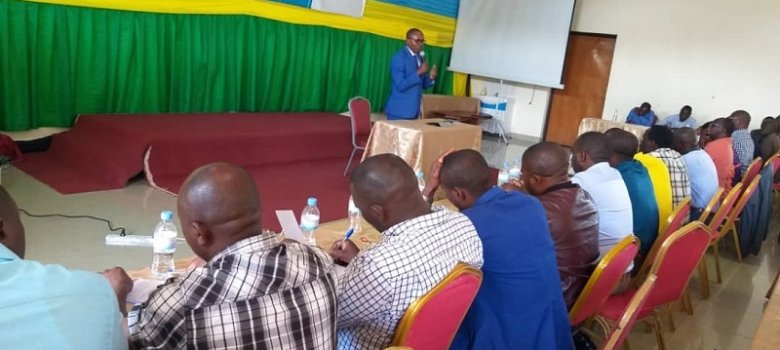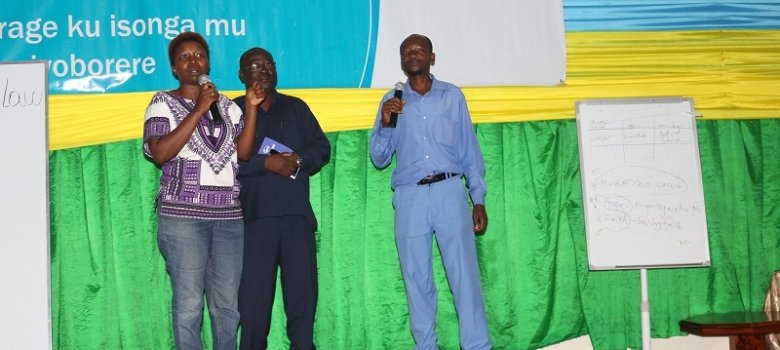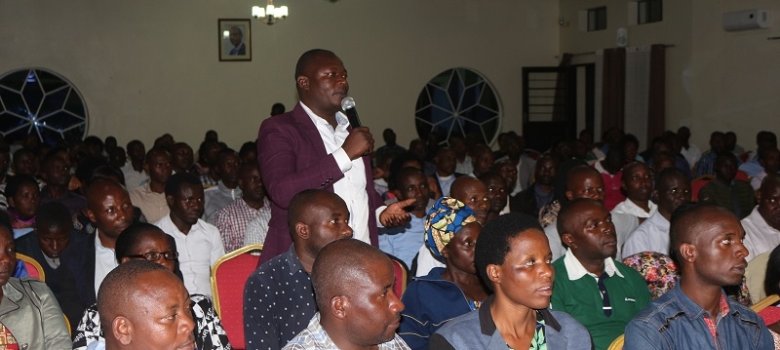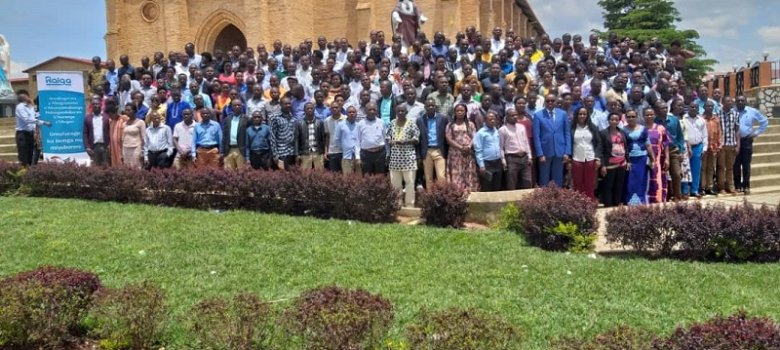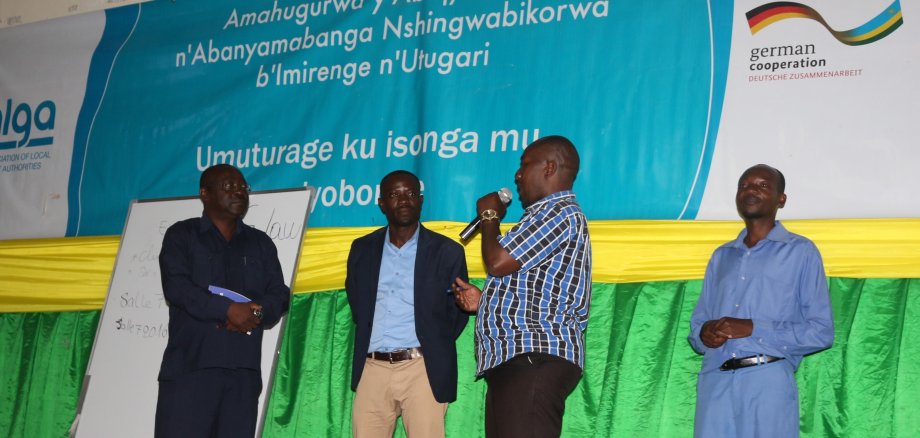As a continuation of its training sessions on “Empowering Local Councilors in promoting Accountable Governance and Citizen Participation”, the Rwanda Association of Local Government Authorities (RALGA) organized a two-day session for Sector and Cell Executive Secretaries, Chairpersons of Cell Councils and members of the Sector Council Bureaus from Rusizi District. The training session took place at Hotel Saint André in Kabgayi, Muhanga District from 7th to 9th October 2019. It was organized in partnership with the Ministry of Local Government (MINALOC) and support from the German Cooperation agency (GIZ) through the Decentralization and Good Governance (DGG) project.
In his opening remarks, the Secretary General for RALGA reminded to elected local leaders attending the training session that they have the responsibility to improve the lives of the very citizens who elected them. He urged them to use the skills from the training to deliver quality and timely services to the people and hence contribute to deliver on the country’s vision.
Over the 258 local leaders expected, the training session was attended by 247 participants, meaning a turn up of 95.7%. For Ms. Innocente Murasi, Director for RALGA’s Local Government Institute (LGI) Department which facilitates the training sessions, the high turn up shows the interest local leaders have not only in the capacity building activity, but also in the topics covered.
On their side, participants highlighted key aspects they particularly appreciated. These include a clear understanding of their duties, roles and responsibilities, as well as the understanding of the local government legal framework. They also appreciated the experience sharing on key factors affecting performance such as gathering accurate data on citizens’ real needs with the purpose of addressing them, building a team work and collaboration spirit, as well as keeping a permanent contact with their citizens through regular field visits.
